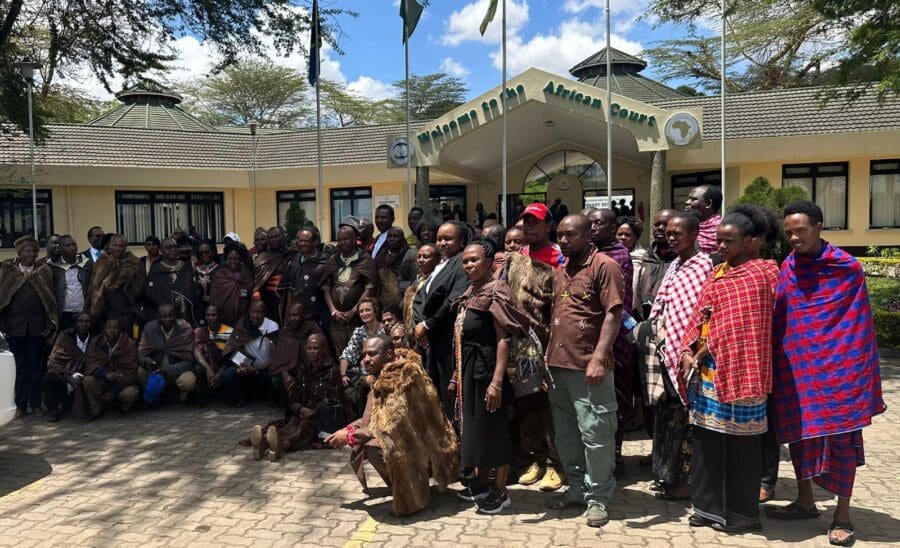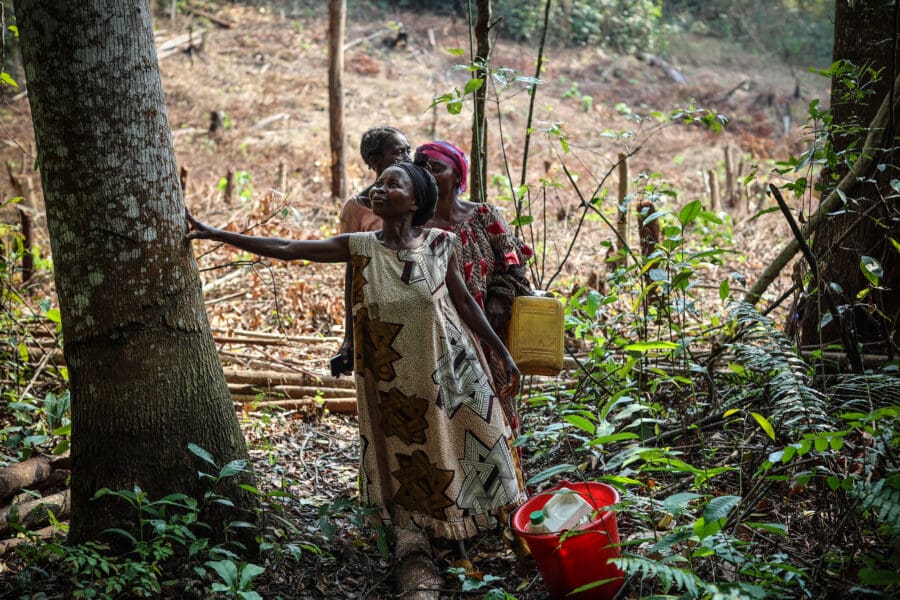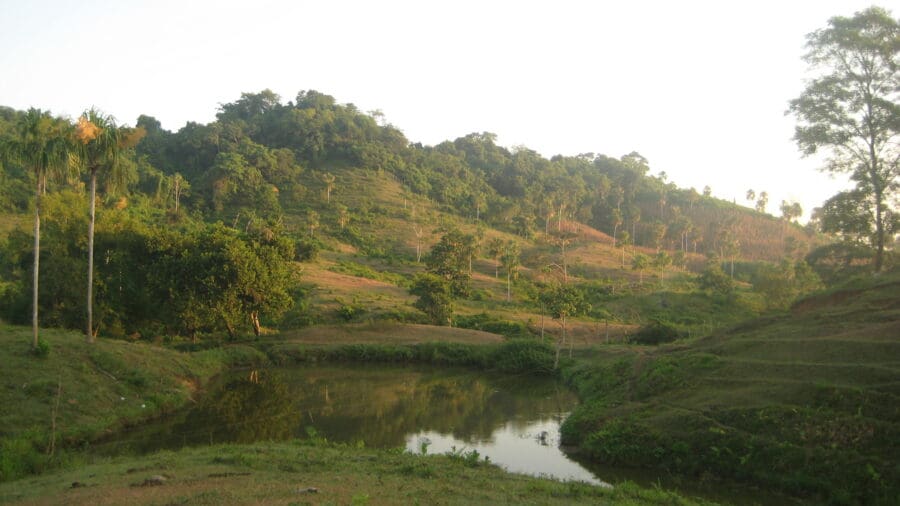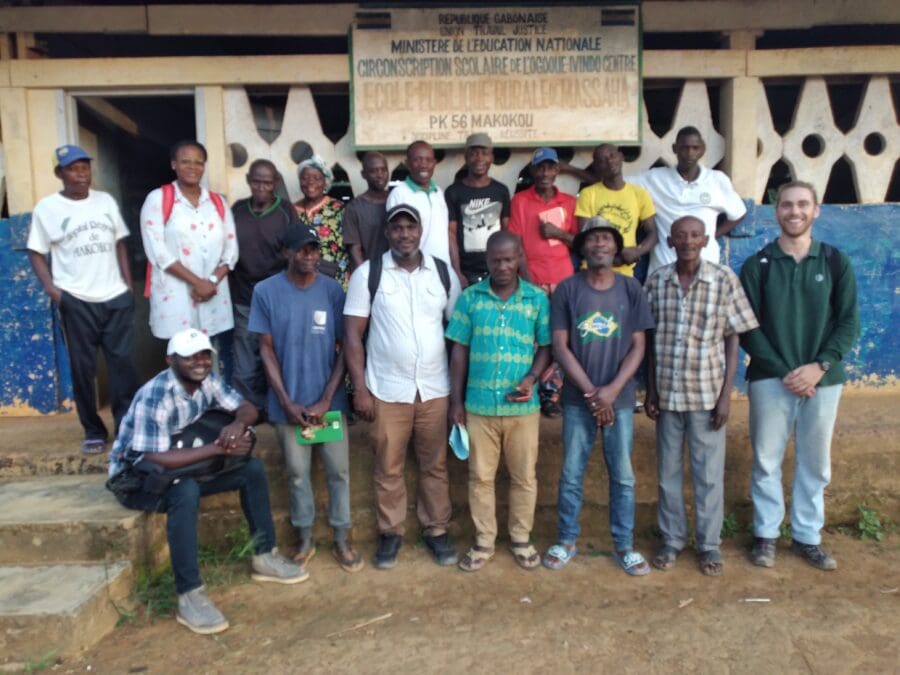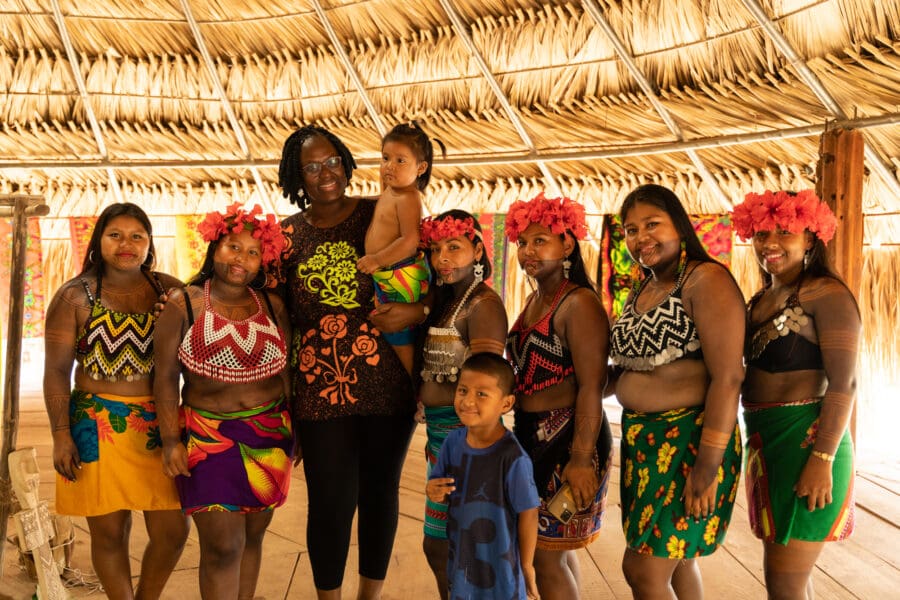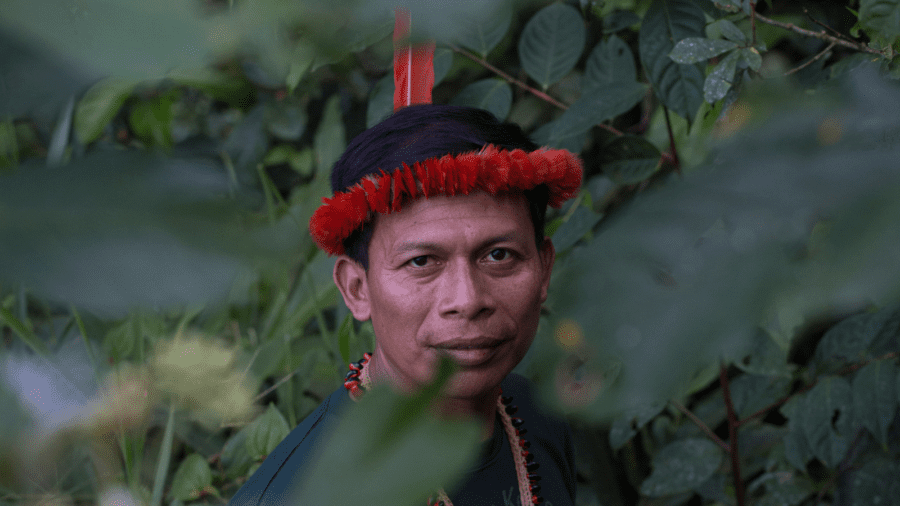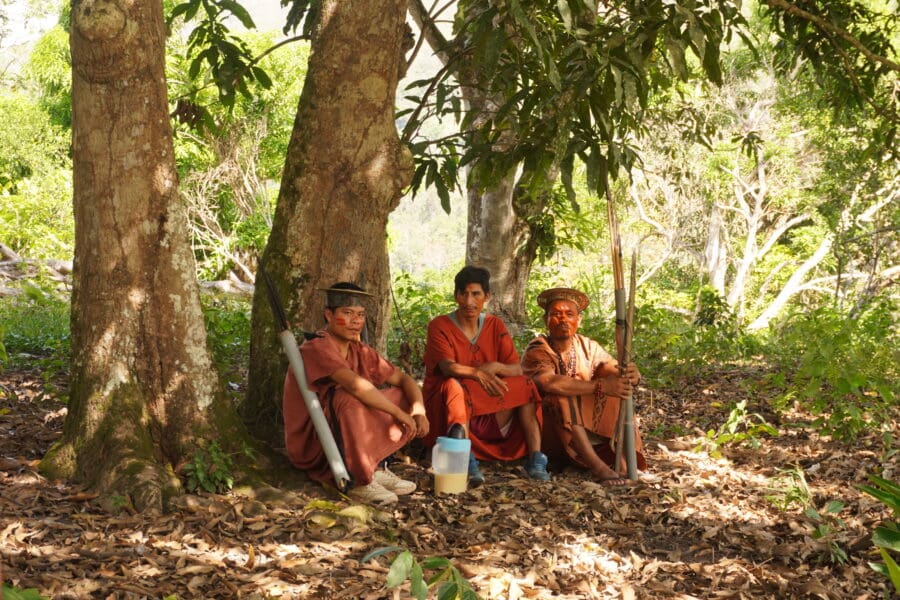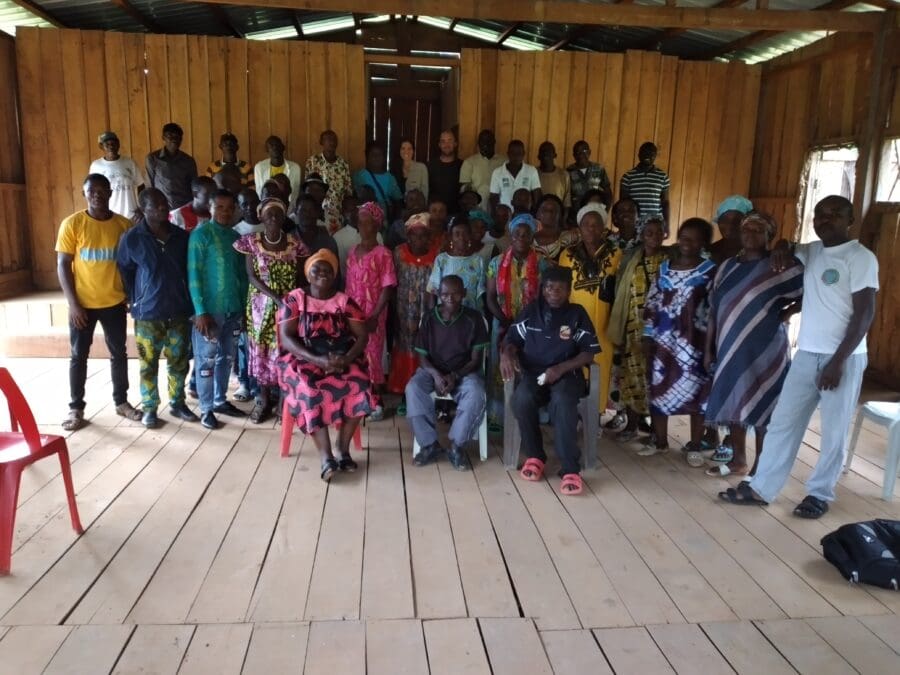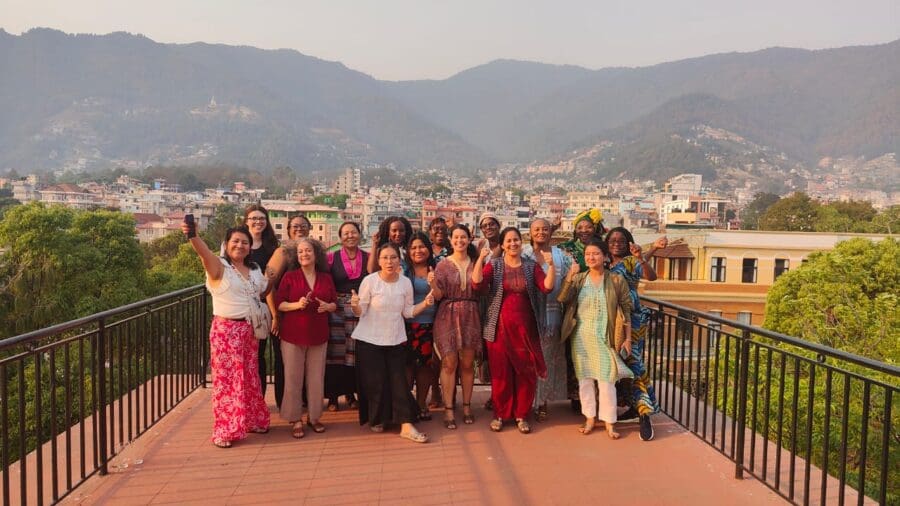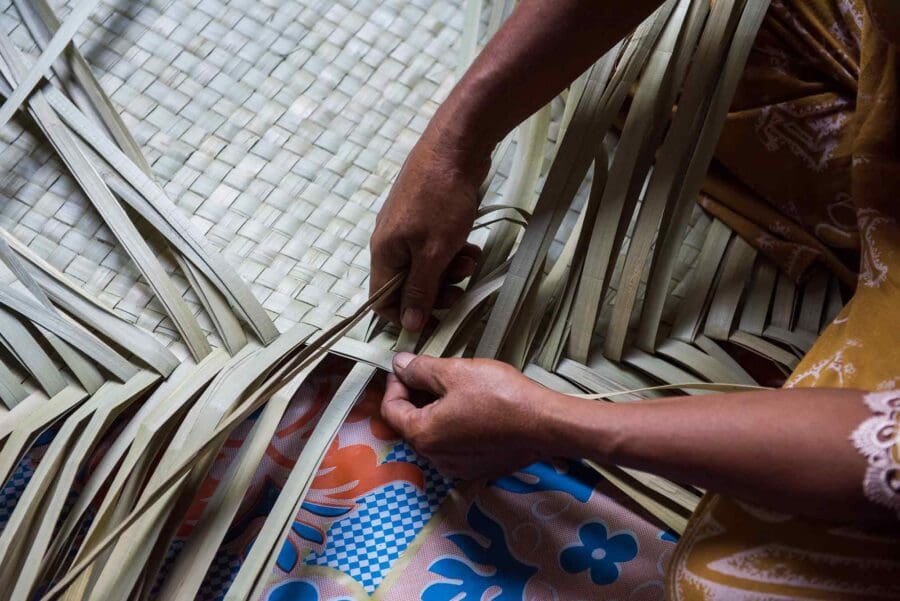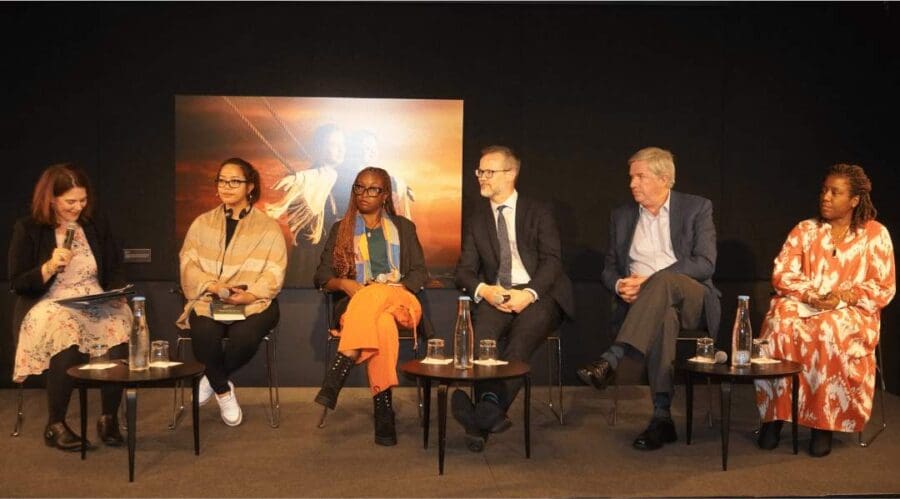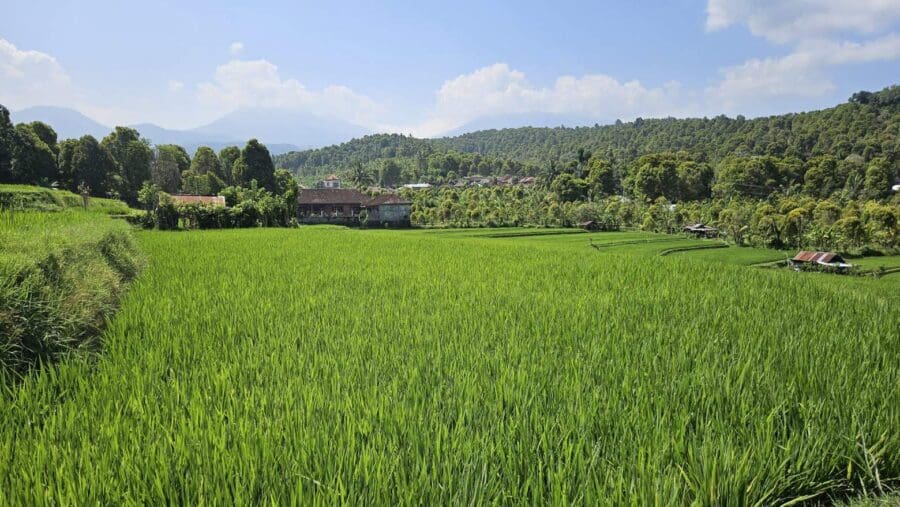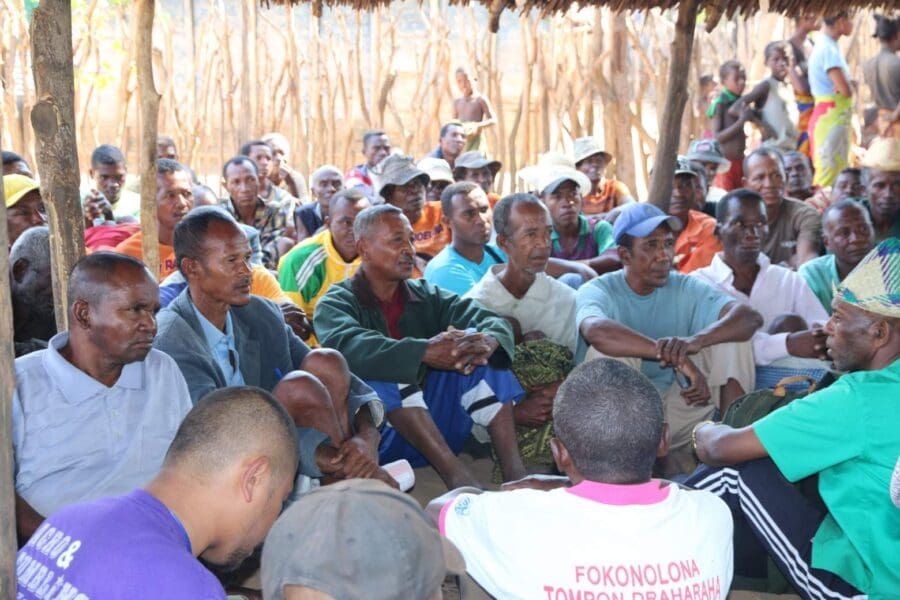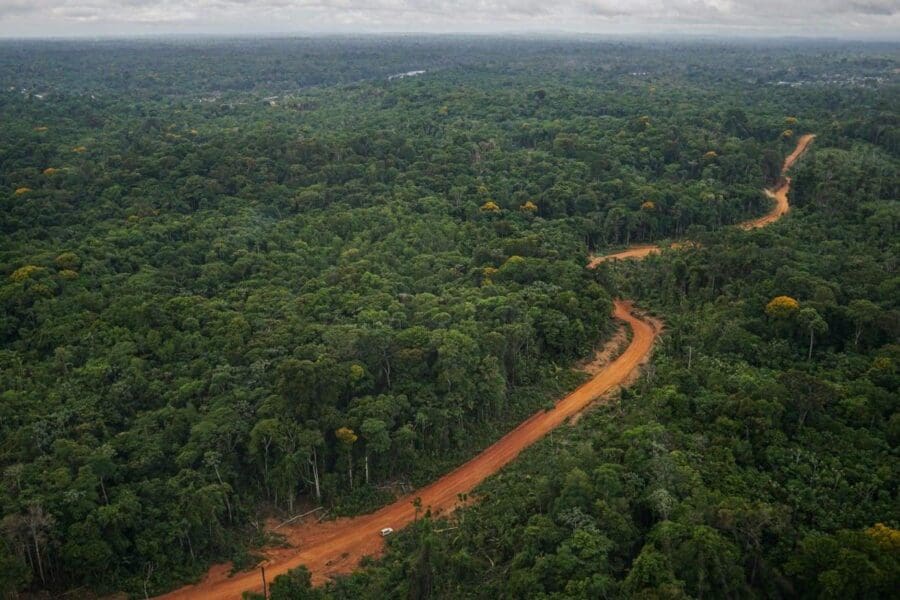On November 12, 2024, at the African Court on Human and Peoples’ Rights (ACtHPR) in Arusha, Tanzania, the Indigenous Ogiek of Mau had to endure yet more abuse at a hearing convened to review the progress made by the Government of Kenya in implementing the orders set out in its Reparations Judgment of June 2022.
Building on the State of Funding report published in April 2024, this blog post shares important updates on finance for Indigenous Peoples', Afro-descendant Peoples', and local communities' tenure and forest guardianship and examples of how direct funding is already driving important progress in tropical forests and other key ecosystems.
After decades of being omitted from the UN’s biodiversity convention, Afro-descendant Peoples in Latin America and the Caribbean got great news at the 16th Conference of the Parties to the UN Convention on Biological Diversity (CBD) recently held in Cali, Colombia.
Gabon’s Massaha communities are documenting the rich biodiversity stored in their ancestral territories to demonstrate the transformative power of community-led conservation. Can they help one of the world’s most forested countries conserve 30% of its biodiversity by 2030?
RRI is seeking nominations for a Chair, Board of Directors to guide its coalition of over 200 partners, collaborators, and fellows in the implementation of its Fourth Strategic Program, which runs through 2027. We are looking for individuals committed to RRI's core issues: the land, resource, and collective rights of Indigenous and Afro-descendent Peoples, and local communities.
This op-ed by Omayra Casamá and Sara Omi was originally published in Spanish in El País. A sustainable future is one where the voices of Indigenous, Afro-descendant, and local community women are not only heard but are integral to the implementation of meaningful conservation and climate change actions.
A report aims to influence the localization agenda and improve bilateral policies and practices to ensure that more direct, fit-for-purpose support reaches Indigenous Peoples, local communities, and Afro-descendant Peoples and their supporting organizations to secure tenure rights and conserve key ecosystems and biodiversity.
On July 14, the body of Mariano Isacama Feliciano was found on the bank of the Yurac River, a tributary of the Amazon in the Peruvian department of Ucayali. Isacama Feliciano was a human rights defender from the Katkataibo Indigenous People and had been working with his community to resist the presence of illegal loggers before his death.
With financial support from the Bezos Earth Fund, RRI's coalition in the Congo Basin has undertaken concrete actions demonstrating alternatives to conservation approaches that exclude communities. In some places, the project's interventions have halted illegal logging, mining, and oil companies’ activities that threaten land and soil degradation as well as local livelihoods.
The Women in Global South Alliance (WiGSA) hosted its second strategic meeting in Kathmandu, Nepal from April 30–May 2, 2024. Armed with a feeling of sisterhood and common purpose, women leaders from 11 countries across Asia, Africa, and Latin America overcame jet lag to meet in person to discuss strategies on how best to support the women and girls they represent.
In this review, we provide a legal snapshot of some of the changes and developments that occurred in 2023. We delve into the shifts, pivotal moments, and groundbreaking strides that defined the year at the sub-national, national, regional, and international levels.
After a five-year hiatus, the World Bank held its Land Conference on May 13–17 in Washington, D.C., bringing together over 1,000 practitioners, donors, advocates, civil society representatives, and government officials. The takeaway was clear: The case for land tenure security as a prerequisite for climate, development, and biodiversity goals has now firmly been made, but many of the same challenges persist in advancing rights-based agendas.
On May 15, 2024, RRI co-organized a multi-sector Dialogue on Securing Land Tenure for Climate Action in Washington, D.C. along the sidelines of the World Bank Land Conference. The packed event, hosted by the Embassy of Sweden in the US and co-organized with Cadasta Foundation, Land Portal Foundation, Landesa, and Forest Trends, brought together a diverse panel of key international actors moderated by Amy Coughenour, CEO of Cadasta Foundation.
The Masyarakat Adat Dalem Tamblingan have lived in and around the Alas Mertajati Forest and Lake Tamblingan areas in Bali since at least the 9th century AD. Now, the community is fighting back and appealing to the government to legally recognize nearly 7,000 hectares of its customary territory.
For the first time, Madagascar's traditional communities, the FOKONOLONA, are being considered in the construction of the country's land reform. Find out how this breakthrough was made possible.
The Surinamese Government has allowed the construction of a large road and extensive logging in the Saamaka territory without local peoples' consent, in violation of orders from the Inter-American Court of Human Rights. We are calling on the international community to #StandWithSaamakaPeople to protect over 1 million hectares of the Amazonian rainforest.
Despite constant threats from extractive activities and drug trafficking, community councils of Afro-descendant Peoples from Buenaventura and Northern Cauca have successfully conserved the forest. This is their extraordinary story.
On 9 January 2024, Congress approved Law 31973—signed by Alejandro Soto and Waldemar Cerrón—which modifies Forestry Law 29763 of 2011. This modification will cause chaos in the management of Peru's forests and an acceleration of deforestation, going against global trends to limit climate change and biodiversity loss.
The recent release of the Second Edition of Who Owns the World’s Land? offers an important moment to take stock of the global state of Indigenous, Afro-descendant, and local community land rights recognition. The data in the report covers 73 countries, which cumulatively comprise 85% of the world's land area, and gives a comprehensive snapshot of the global landscape for community land rights at a critical moment for people and the planet. Here are five of the biggest takeaways from the report.
For more than 10 years, the LandWise Law Library has grown into an essential resource on family, land, and natural resource rights under the care of Landesa and Resource Equity. As Resource Equity closes its doors, RRI is thrilled to announce that it will carry the LandWise Law Library on through its next chapter.
RRI collaborators are celebrating two big victories for Indonesia’s agrarian reform movement this October. The Consortium for Agrarian Reform’s years-long advocacy with peasant and smallholder farmers has led to redistribution of two agrarian reform priority locations by the Indonesian Government, transferring their control to peasant and their union who have long reclaiming and managing these lands.
Co-authored with 15 organizations from across Asia—spanning youth groups, Indigenous networks, and ally organizations—this new report collates and brings to the fore the experiences and leadership of youth activists from across the continent into a call to action.
This October, the Democratic Republic of the Congo (DRC)’s National Assembly passed the country’s first-ever legislation on land-use planning. The historic bill’s passage is a result of years-long advocacy by civil society organizations led by RRI collaborator Centre for Innovative Technologies and Sustainable Development.
From September 12–14, 2023, the African Land Institutions Network for Community Rights (ALIN) will hold its 4th regional conference in Arusha, Tanzania. Land institutions from over a dozen countries will share lived experiences, opportunities, and challenges to further the community land rights agenda in Africa, with Indigenous and local community women, youth, and pastoralists taking center stage.

